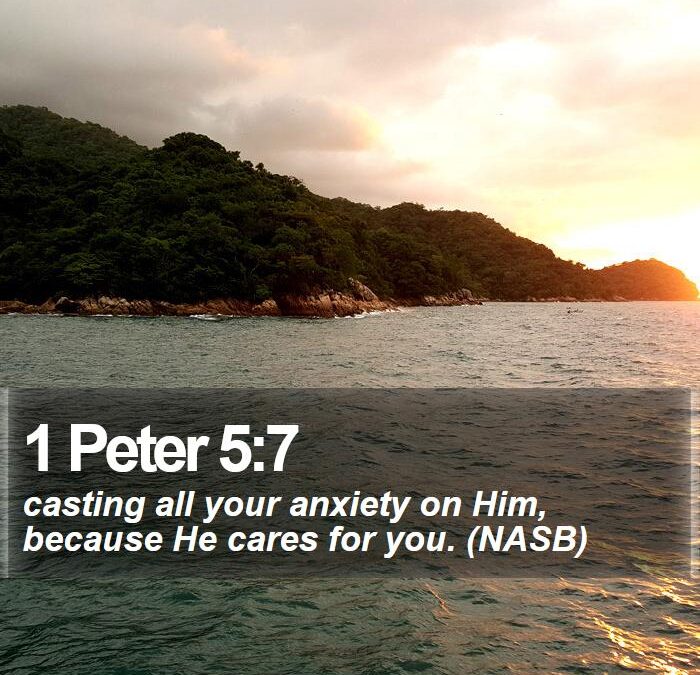Now Peter’s instruction in v.7 should not be compared to throwing your anxiety in the backyard so that you will look at it every day and eventually go pick it up again. No, this is throwing your anxiety off of a moving train as it’s going by the edge of a cliff. We cast the worry on God and say goodbye to it, instead of coddling it and massaging it because it makes us feel better.
The problem sometimes is that we attempt to throw our anxieties on him, but we tie a rope to them as a safety measure just in case the Lord proves to be untrustworthy. Then if something doesn’t change according to our expectations or our timetables, we can just pull that anxiety right back to us. This exposes the very essence of anxious care, which is imagining that we are wiser than God, and so we thrust ourselves into His place, to do for Him that which we think He either cannot or will not do!
As a preventative measure against that, we must see the connection Peter makes in the grammar of vv.6-7–Casting our anxieties on the Lord is the explicit way we remain humble under the mighty hand of God. Humility admits we lack our own strength and wisdom to keep the Lord’s will throughout the various circumstances of life. Pride says that we need to take matters into our hands because God doesn’t really care for us how He ought. Let us remain in a position of receiving more grace from God instead of being opposed by Him (1 Pet. 5:5).

